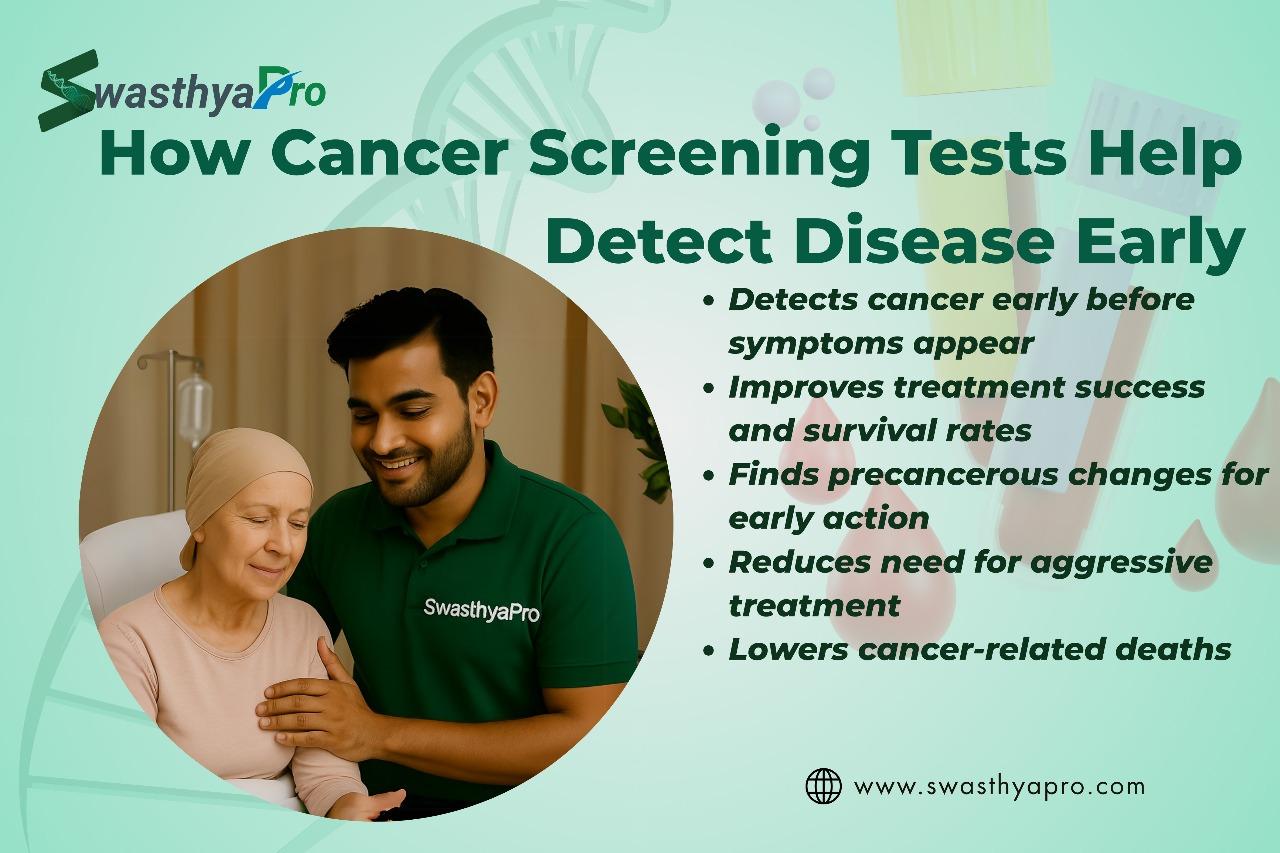How to Talk to Your Parents About Getting a cancer screening test

You love your parents. You want them to live long, healthy lives. But when it comes to medical checkups—especially something like a cancer screening test—they often avoid the topic. Some might say, “I feel fine,” or “There’s no need right now.” Others may fear what the results might show.
Whatever the reason, it’s not easy convincing them to get checked. But you can help them understand why a cancer screening test isn't about fear—it’s about prevention, peace of mind, and early action.
In this guide, we’ll help you start that conversation with care, respect, and facts—so your parents feel supported, not scared.
Why It Matters Now More Than Ever
Cancer risk increases with age. Many cancers—like breast, prostate, colon, cervical, and lung cancer—are far more common after age 45. Yet many parents have never had a proper cancer screening test, or they only get checked when symptoms appear.
The problem? Most early-stage cancers don’t show symptoms at all. A timely cancer screening test could detect disease early—when it’s most treatable and often curable.
By encouraging your parents now, you’re not being pushy. You’re protecting them—sometimes from something they can't even feel yet.
Step 1: Understand Their Resistance
Before you bring up a cancer screening test, understand why your parents might hesitate.
Common reasons include:
-
Fear of the results
-
Denial (“I’m fine”)
-
Assuming it’s too expensive or unnecessary
-
Embarrassment about certain tests (like colonoscopy or Pap smears)
-
Past bad experiences with hospitals or doctors
By identifying the root of their hesitation, you’ll know how to approach the conversation more gently.
Step 2: Choose the Right Time and Place
This isn’t a discussion to have in a rush or during a stressful moment. Choose a quiet, relaxed time—maybe after dinner, during a walk, or on a calm weekend morning.
Make sure your tone is kind, not confrontational. This isn’t about lecturing them. It’s about sharing concern.
You can start with:
“I’ve been thinking about your health lately. There’s this thing called a cancer screening test that’s really helped a lot of families catch issues early. Would you be open to learning more about it?”
Step 3: Share the Facts Simply
You don’t need to overwhelm them with medical jargon. Just keep it simple:
-
A cancer screening test is preventive, not diagnostic.
-
It doesn’t mean they have cancer. It just helps check for warning signs.
-
Most tests are quick, safe, and affordable. Some even offer home sample collection.
-
Early detection can make treatment easier—or even unnecessary.
Let them know this isn’t about fear—it’s about staying in control of their health.
Step 4: Offer to Help
Many older adults avoid getting a cancer screening test simply because the process feels overwhelming—booking, travel, payments, reports.
Here’s how you can help:
-
Find a trusted lab or hospital with good reviews
-
Book the appointment online or via phone
-
Arrange home sample collection (available with services like 1mg, Redcliffe Labs, or Healthians)
-
Accompany them if needed for in-clinic screenings
-
Help interpret reports and schedule follow-up consultation
Sometimes, offering help is what makes them finally say yes.
Step 5: Make It a Family Priority
Frame it as a family health check—not just for them, but for everyone. You could say:
“I just did a cancer screening test last month, and it gave me peace of mind. Let’s do this as a family—I'll book for you and Mom together.”
When it feels like a shared routine instead of a personal burden, they’ll be more open to it.
Common Screening Tests to Discuss
Here are the tests most parents aged 45+ should consider:
-
Mammogram (for breast cancer)
-
PSA blood test (for prostate cancer)
-
Pap smear + HPV (for cervical cancer)
-
Colonoscopy or stool test (for colon cancer)
-
Low-dose CT scan (for lung cancer, if they smoke)
-
Oral cancer check (if tobacco or alcohol is used)
-
Skin cancer exam (especially with history of sun exposure)
These are all standard cancer screening test options and can be done affordably and conveniently.
What If They Still Say No?
Don’t push. Instead:
-
Respect their choice—and leave the door open
-
Share success stories (from friends or family who benefited from early screening)
-
Try again later—timing matters
-
Send an article or video they can read/watch on their own time
Sometimes, planting the seed is enough. The goal is to keep the conversation alive, not force it.
Final Thoughts
Talking to your parents about getting a cancer screening test isn’t easy—but it’s one of the most loving things you can do. You're not just encouraging a medical exam. You’re helping protect their future, giving them options, and showing them how much you care.
So have the conversation. Make it gentle. Offer support. And when they’re ready, be the one who helps them take that first step toward peace of mind.
Because early detection doesn’t just save lives—it preserves families.
- Art
- Causes
- Best Offers
- Crafts
- Dance
- Drinks
- Film
- Fitness
- Food
- Games
- Festival
- Gardening
- Health
- Home
- Literature
- Music
- Networking
- Other
- Party
- Religion
- Shopping
- Sports
- Theater
- Wellness



